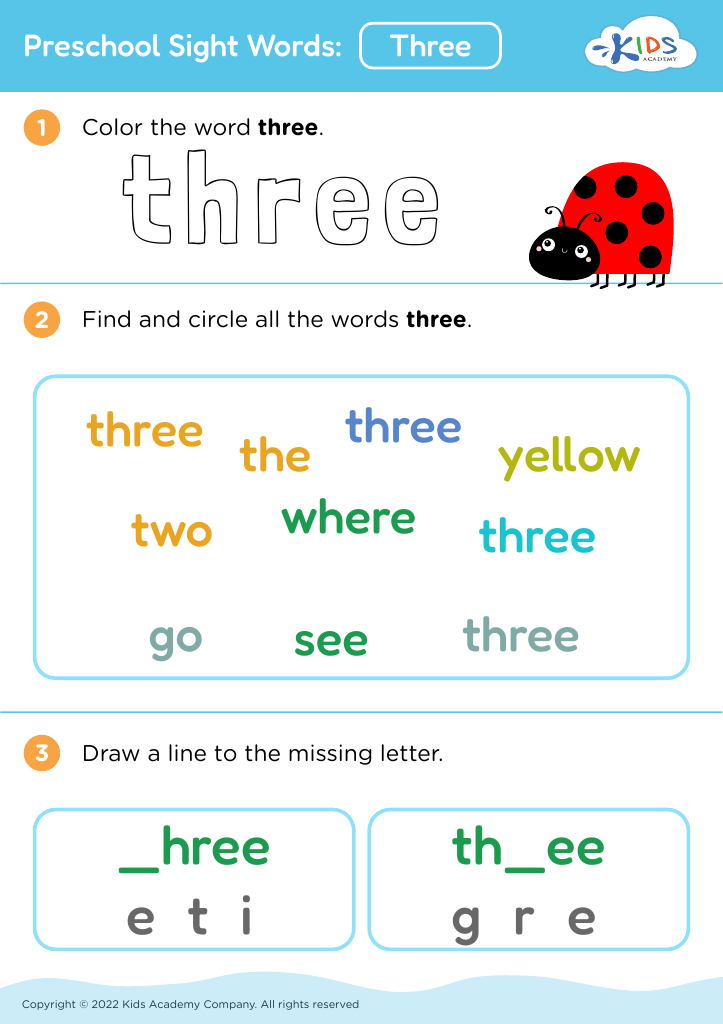Multiplication practice Worksheets for Ages 3-6
13 filtered results
-
From - To
Introduce your little ones to the world of multiplication with our engaging Multiplication Practice Worksheets for Ages 3-6! Designed specifically for young learners, these printables make learning effortless and fun. Our colorful, child-friendly exercises help children grasp basic multiplication concepts while enhancing their counting, number recognition, and problem-solving skills. Perfect for reinforcing classroom lessons or introducing new concepts at home, these worksheets will boost your child’s confidence in math. Start your early learning journey today with Kids Academy and watch your child succeed in mastering foundational math skills with ease!
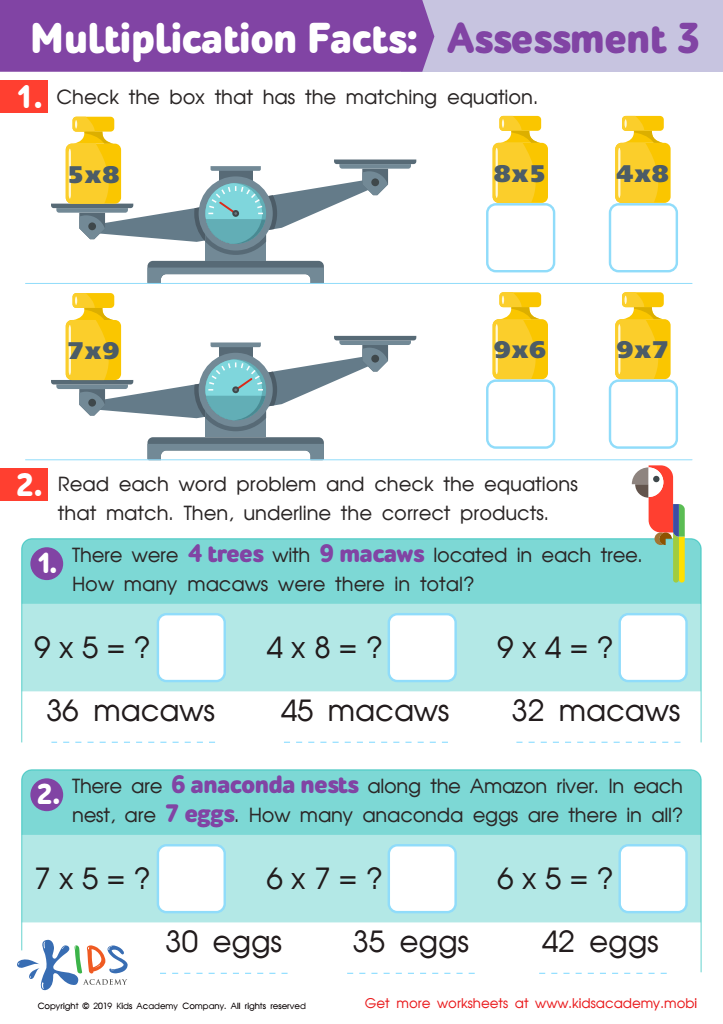

Multiplication Facts: Assessment 3 Worksheet


Enrichment -2 Step Word Problems Worksheet
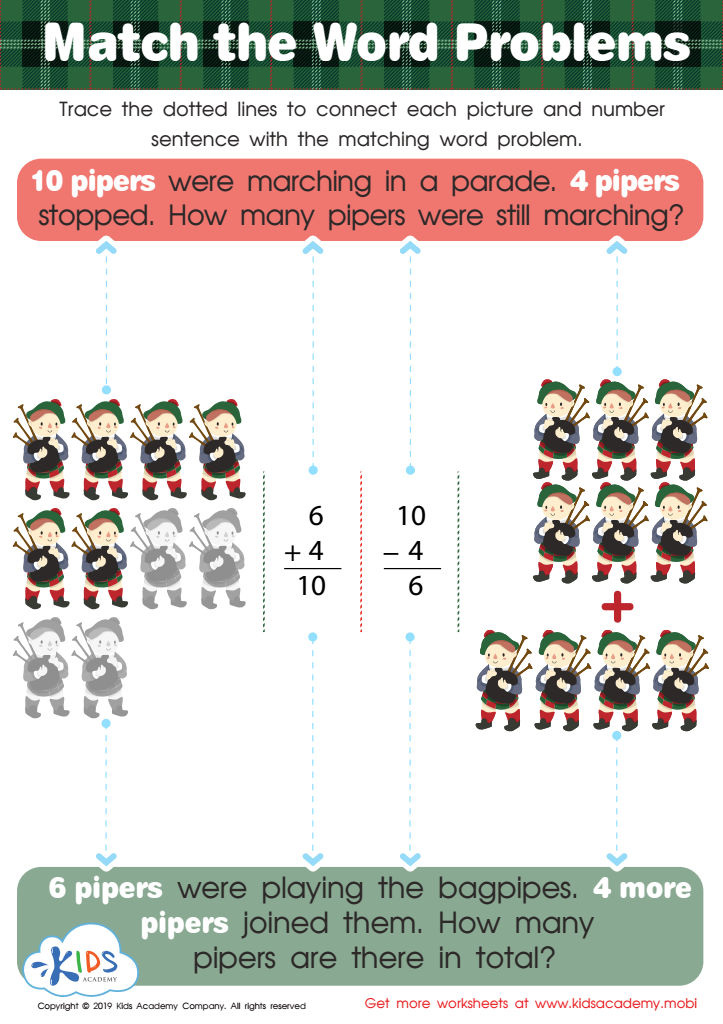

Match the Word Problems Worksheet
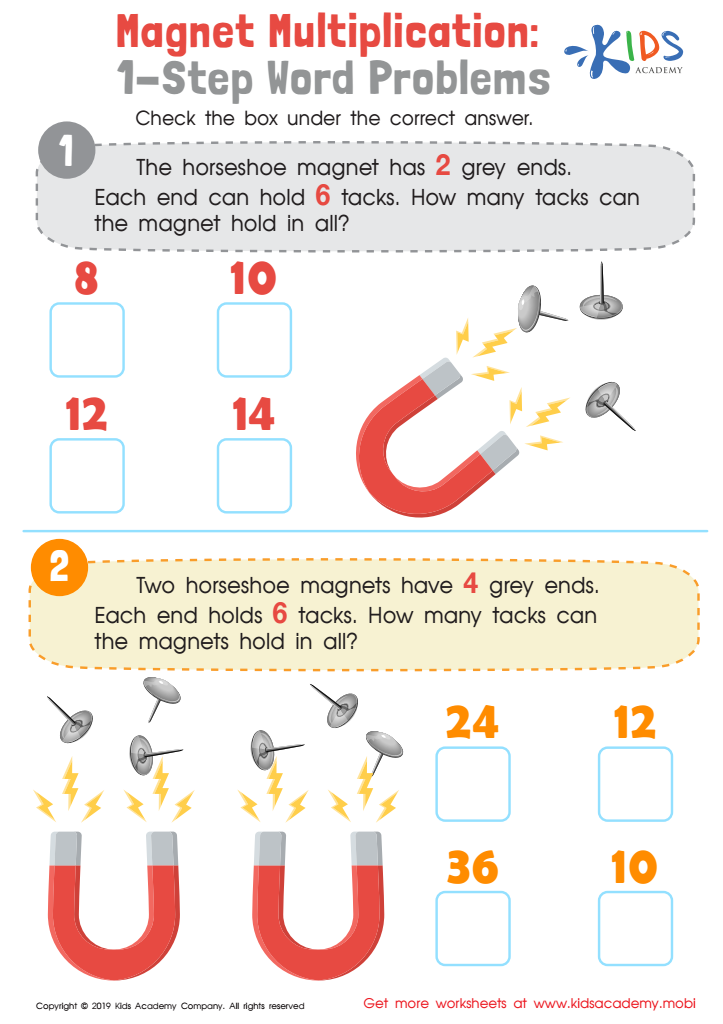

Magnet Multiplication: 1-Step Word Problems Worksheet
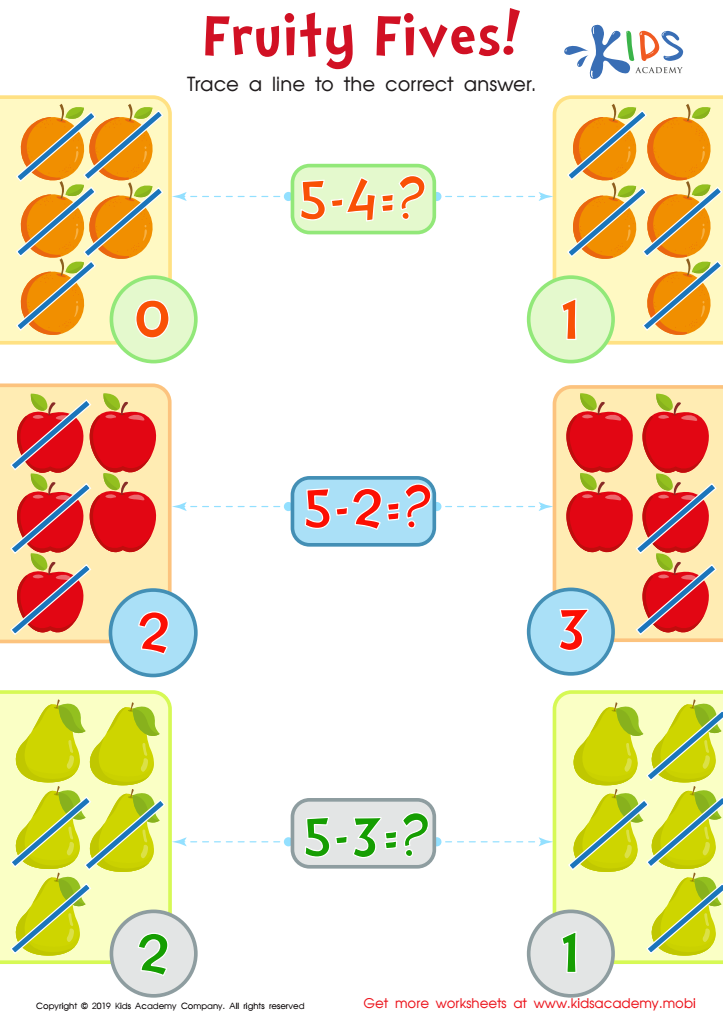

Fruity Fives! Worksheet
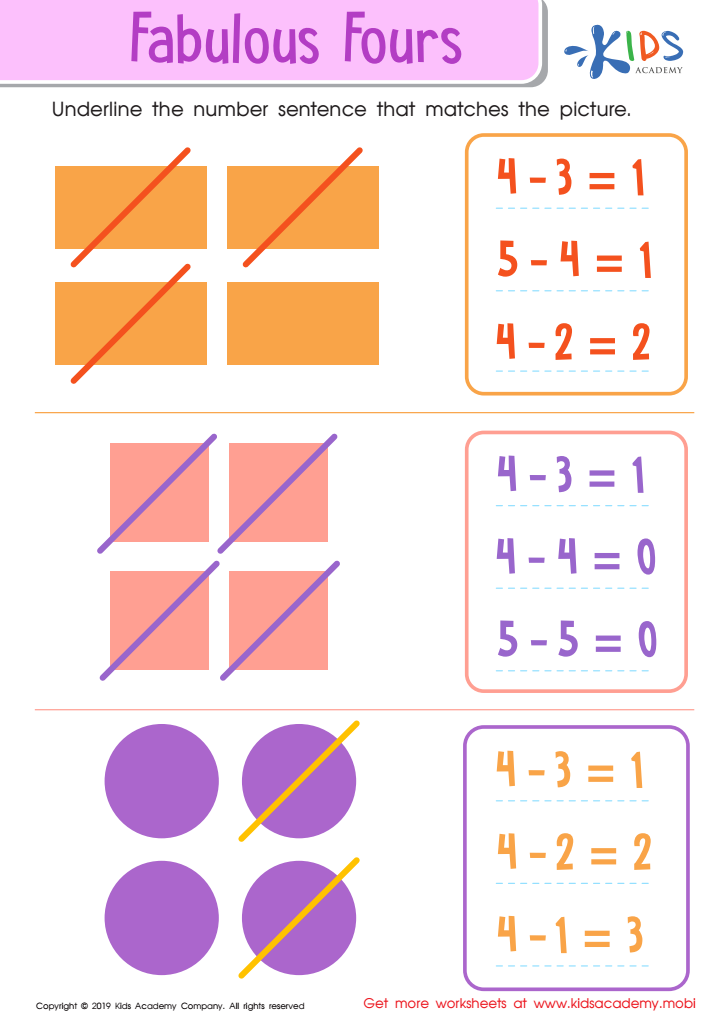

Fabulous Fours Worksheet
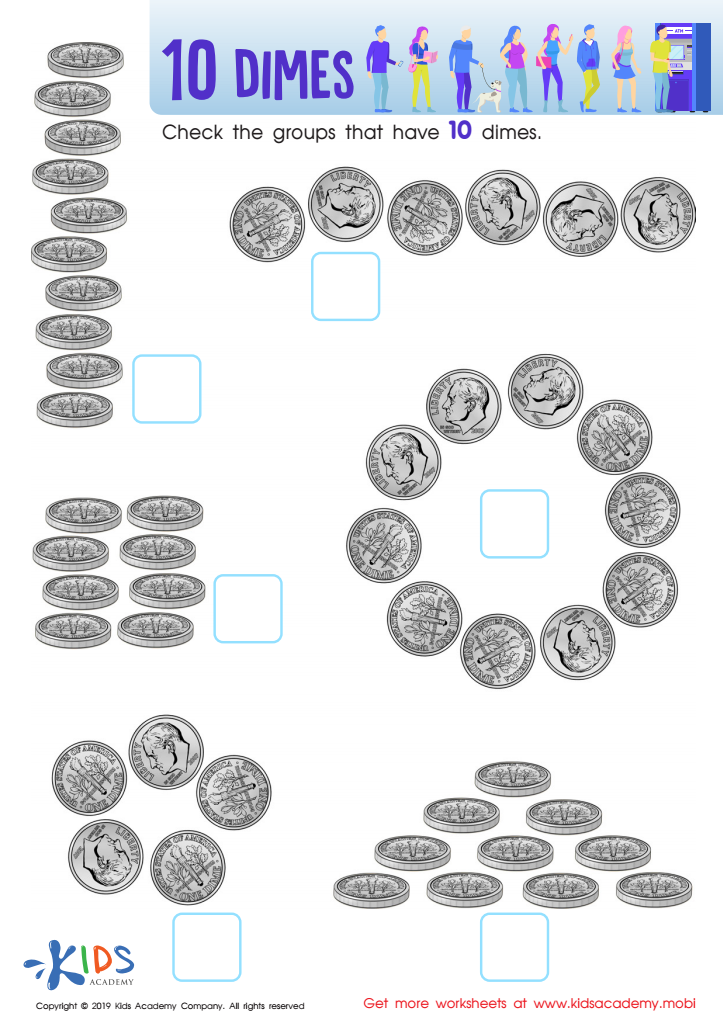

10 Dimes Worksheet
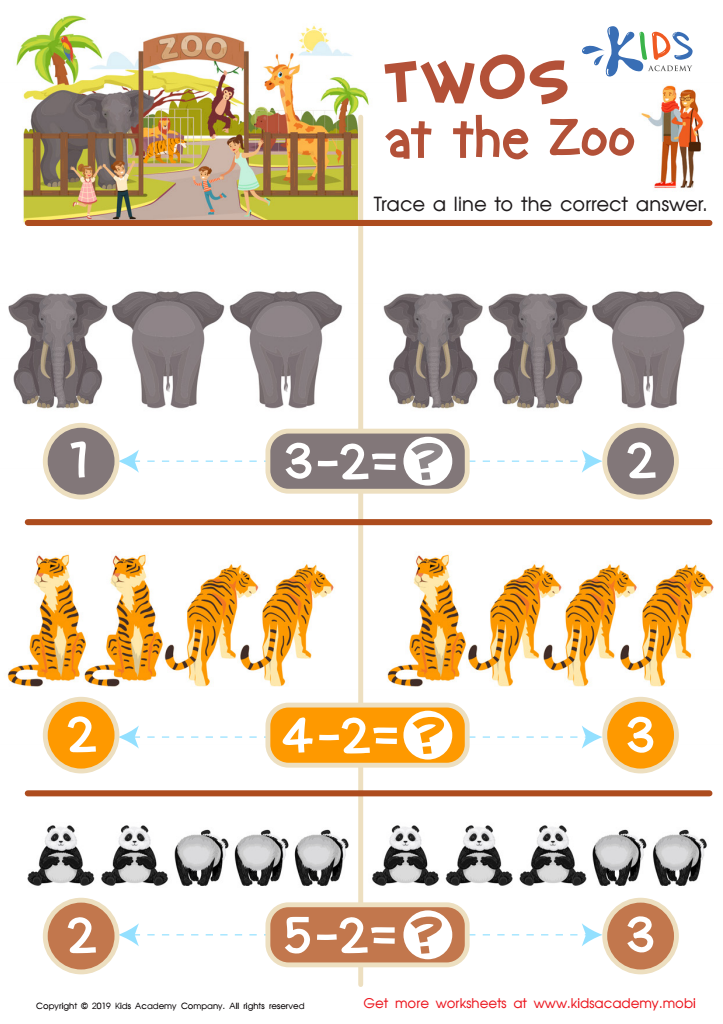

Twos at the Zoo Worksheet
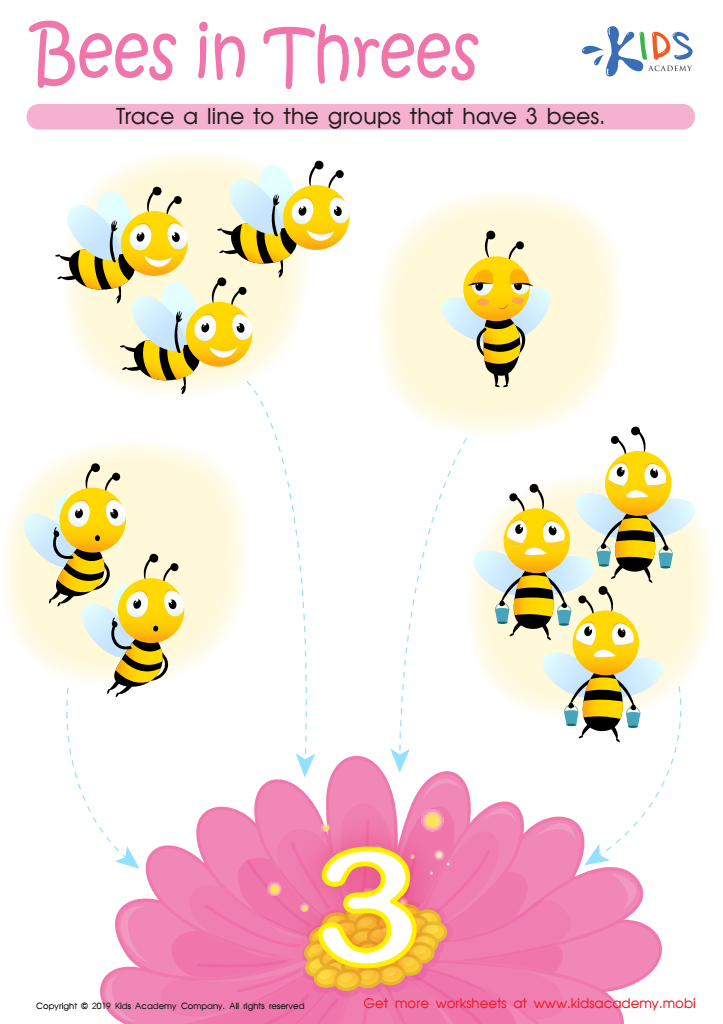

Bees in Threes Worksheet
While focusing on formal multiplication might seem premature for children ages 3-6, laying a solid foundation for mathematical understanding is crucial. At this early stage, young children are exceptionally receptive to learning through play and exploration, which significantly impacts their cognitive development.
Firstly, introducing basic numeracy skills early on – such as counting, sorting, and pattern recognition – plants the seeds for more complex mathematical concepts like multiplication. Simple exercises, such as grouping objects or using visual aids, foster an intuitive grasp of "more," "less," and "equal" – which are crucial for understanding multiplication later.
Secondly, engaging young children with math through games, songs, or playful activities keeps them stimulated and curious. This positive interaction with math nurtures a growth mindset, reducing anxiety or negative feelings towards the subject as they progress in school.
Moreover, structured, consistent exposure to basic math concepts can have long-term educational benefits. Children who develop strong early numeracy skills are more likely to perform better in formal math assessments in future academic settings.
Therefore, while specific multiplication practice might not be appropriate, cultivating an environment rich in mathematical opportunities through fun, relatable activities, while building on early numeracy concepts, prepares children aged 3-6 for eventual multiplication understanding and overall math literacy.

 Assign to My Students
Assign to My Students


